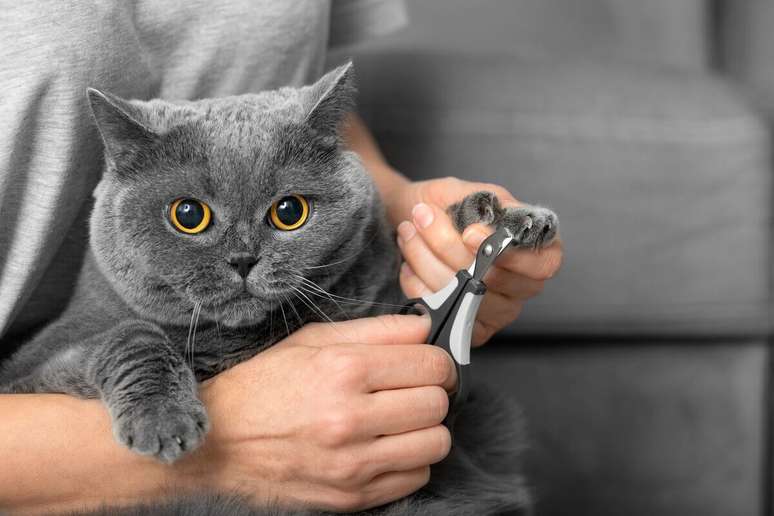Providing suitable alternatives can help discourage unwanted animal behavior.
Cats have a natural behavior of scratching for various purposes, including marking territory, sharpening claws, and stretching muscles. The sofa often becomes the target of scratches due to its structure and location within the home, which can be perceived as an ideal place to practice these behaviors. Additionally, scratching also helps remove the outer layers of the claws, keeping them sharp and healthy.
To prevent cats from developing the habit of scratching the sofa, it is important to provide suitable alternatives. So, below, check out 8 tips to overcome this type of behavior!
1. Suitable and attractive scratching post
Cats have a natural instinct to sharpen their claws and mark their territory. Providing a suitable and attractive scratching post can divert the pet’s attention. Choose an option with different textures, such as sisal, carpet or wood, and place it in a place that is visible and accessible to the cat.
2. Use pheromones and catnip
Applying synthetic pheromones or catnip to the scratching post can make it more attractive and desirable to the cat. Pheromones play a vital role in communication, territorial marking and social behavior of these animals. They are chemical messengers that convey important information to cats.
Catnip, in turn, is a plant belonging to the mint family, which contains a chemical substance called nepetalactone. When cats smell or ingest this substance, it triggers a response in the nervous system, causing a reaction that can include excitement, euphoria and relaxation.
3. Reinforce positive behaviors
When your cat uses the scratching post, praise him and reward him with treats or affection. Positive reinforcement can help you associate use with something pleasant.
4. Protect the sofa
While your cat is being trained, cover the couch with blankets, sheets, or protective covers to discourage declawing in that area. This can prevent further damage while your cat learns to use the scratching post.

5. Trim your nails regularly
Keeping your cat’s nails trimmed can significantly reduce the damage caused to your couch. Trim them regularly, being careful not to hurt the animal, or consider using a cat-specific hair clipper.
6. Barriers and limitations to access
Closing doors or using physical barriers to prevent your cat from accessing the couch when unattended can help prevent scratching behavior.
7. Environmental enrichment
Provide an enriched environment with toys, shelves or vertical structures for the cat to explore and enjoy. This can take his attention away from the couch.
8. Consistency and patience
Changing a cat’s habits can take time. Be consistent and patient when teaching him to use the scratching post. Persistence and positive reinforcement are essential to changing unwanted behaviors.
Source: Terra
Ben Stock is a lifestyle journalist and author at Gossipify. He writes about topics such as health, wellness, travel, food and home decor. He provides practical advice and inspiration to improve well-being, keeps readers up to date with latest lifestyle news and trends, known for his engaging writing style, in-depth analysis and unique perspectives.








